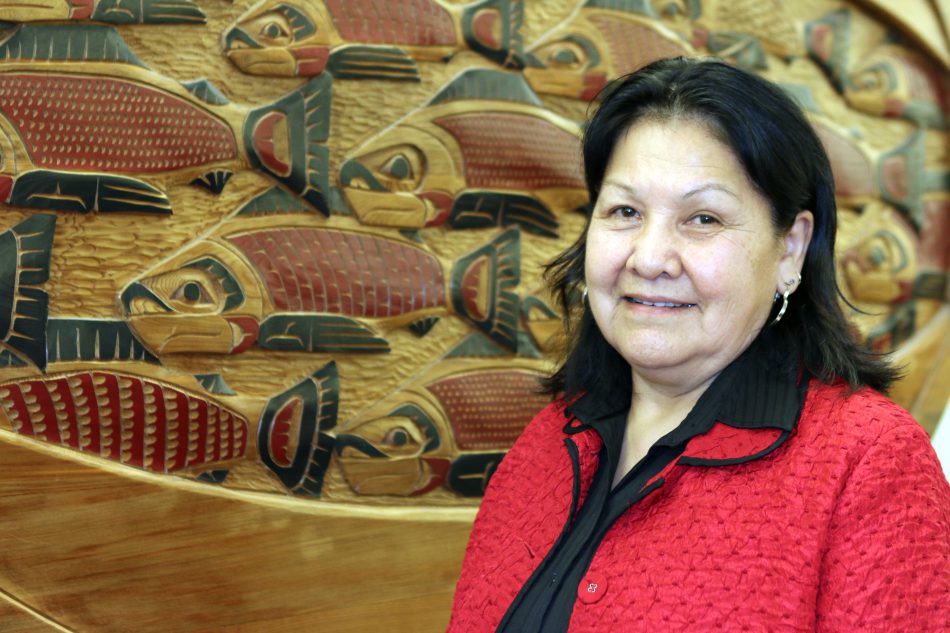A Vancouver Island University scholar will be returning to her indigenous community in the Cariboo to support the development of programs to preserve her language and culture.
Awarded a $50,000 Social Sciences and Humanities Research Council grant for her project We will Survive if the Salmon Survive, Dr. Georgina Martin will be collaborating with Bev Sellars with the Soda Creek First Nation and Jean William of the Williams Lake Indian Band.
“There’s been a depletion of the salmon and there’s also been a breakdown in the teachings between the youth and the elders for them to continue on these important traditional practices, and of course the ecology of the river there’s always a threat,” Martin said.
“So Bev and Jean wanted to get involved in this project so that we could provide a positive response and make sure that there’s sustenance and preservation of these two very important elements for our Secwepemc culture.
Two focus groups with youth between the ages of 19-30 from T’exelc (Williams Lake Indian Band) and Esk’etemc (Alkali Lake) that helped teach them about their language, the cultural importance of the landscape along the Fraser River, using and conserving the salmon, and the traditional harvesting of medicinal plants have already been held as part of the project.
“I was in discussion with Bev who has a lot of passion about protecting the Fraser River and she’s also working on a separate documentary, but it’s been quite identified with effects of global warming,” Martin said of the name of the project.
“When we drive along the Fraser River especially during the summer after the snowmelt is complete, the river is always very low so we know that the patterns and the level of the Fraser River is going to cause a depletion of the ability of the salmon to move up the river and to be able to survive. If the salmon is no longer accessible to our people then that means a huge disruption in the cultural and traditional practices of the people who have for many years thrived on salmon as a staple in our diet.”
Martin said Sellars, Jean, and herself will be visiting the five Secwepemc communities; the Stswecem’c /Xgat’tem (Canoe Creek, Dog Creek), Xat’sūll (Soda & Deep Creek), T’exelc (Williams Lake), Esk’etemc (Alkali Lake) and High Bar First Nations at the end of the month to explain to community members the impetus of the project, what’s occurring in the area, and asking them for their support and feedback on the planned development of the project.
“As a person who was born and raised in my home community right at the end of Williams Lake, I’m very proud to be able to go back and provide assistance to my community in the capacity that I have as an indigenous scholar,” Martin said.
“To me, that’s really important and it was part of my teachings from my grandparents; especially my grandfather. He told me that somehow I needed to go back and help my people so in my mind and in my heart that’s what I’m doing with this particular project.”
The 1st phase of the project will be finished by the end of March. Martin said the information that is collected will form the basis of a river rafting curriculum that will involve Elders and youth on the Fraser River.




